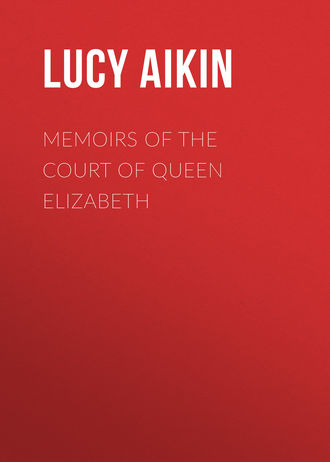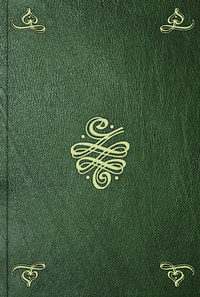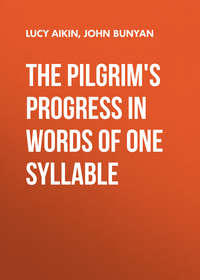 полная версия
полная версияMemoirs of the Court of Queen Elizabeth
It was in the department of English poetry alone that any perceptible advance was effected or prepared during this deplorable æra; and it was to the vigorous genius of one man, whose vivid personifications of abstract beings were then quite unrivalled, and have since been rarely excelled in our language, and whose clear, copious, and forcible style of poetic narrative interested all readers, and inspired a whole school of writers who worked upon his model, that this advance is chiefly to be attributed. This benefactor to our literature was Thomas Sackville, son of sir Richard Sackville, an eminent member of queen Mary's council, and second-cousin to the lady Elizabeth by his paternal grandmother, who was a Boleyn. The time of his birth is doubtful, some placing it in 1536, others as early as 1527. He studied first at Oxford and afterwards at Cambridge, distinguishing himself at both universities by the vivacity of his parts and the excellence of his compositions both in verse and prose. According to the custom of that age, which required that an English gentleman should acquaint himself intimately with the laws of his country before he took a seat amongst her legislators, he next entered himself of the Inner Temple, and about the last year of Mary's reign he served in parliament. But at this early period of life poetry had more charms for Sackville than law or politics; and following the bent of his genius, he first produced "Gorboduc," confessedly the earliest specimen of regular tragedy in our language; but which will be noticed with more propriety when we reach the period of its representation before queen Elizabeth. He then, about the year 1557 as is supposed, laid the plan of an extensive work to be called "A Mirror for Magistrates;" of which the design is thus unfolded in a highly poetical "Induction."
The poet wandering forth on a winter's evening, and taking occasion from the various objects which "told the cruel season," to muse on the melancholy changes of human affairs, and especially on the reverses incident to greatness, suddenly encounters a "piteous wight," clad all in black, who was weeping, sighing, and wringing her hands, in such lamentable guise, that
"–never man did seeA wight but half so woe-begone as she."Struck with grief and horror at the view, he earnestly requires her to "unwrap" her woes, and inform him who and whence she is, since her anguish, if not relieved, must soon put an end to her life. She answers,
"Sorrow am I, in endless torments painedAmong the furies in th' infernal lake:"from these dismal regions she is come, she says, to bemoan the luckless lot of those
"Whom Fortune in this maze of misery,Of wretched chance most woful Mirrors chose:"and she ends by inviting him to accompany her in her return:
"Come, come, quoth she, and see what I shall show,Come hear the plaining and the bitter baleOf worthy men by Fortune's overthrow:Come thou and see them ruing all in row.They were but shades that erst in mind thou rolled,Come, come with me, thine eyes shall then behold."He accepts the invitation, having first done homage to Sorrow as to a goddess, since she had been able to read his thought. The scenery and personages are now chiefly copied from the sixth book of the Æneid; but with the addition of many highly picturesque and original touches.
The companions enter, hand in hand, a gloomy wood, through which Sorrow only could have found the way.
"But lo, while thus amid the desert darkWe passed on with steps and pace unmeet,A rumbling roar, confused with howl and barkOf dogs, shook all the ground beneath our feet,And struck the din within our ears so deep,As half distraught unto the ground I fell;Besought return, and not to visit hell."His guide however encourages him, and they proceed by the "lothly lake" Avernus,
"In dreadful fear amid the dreadful place.""And first within the porch and jaws of hellSat deep Remorse of Conscience, all besprentWith tears; and to herself oft would she tellHer wretchedness, and cursing never stentTo sob and sigh: but ever thus lamentWith thoughtful care, as she that all in vainShould wear and waste continually in pain.Her eyes, unsteadfast rolling here and there,Whirled on each place as place that vengeance brought,So was her mind continually in fear,Tossed and tormented with tedious thoughtOf those detested crimes that she had wrought:With dreadful cheer and looks thrown to the sky,Longing for death, and yet she could not die.Next saw we Dread, all trembling how he shookWith foot uncertain proffered here and there,Benumbed of speech, and with a ghastly lookSearched every place, all pale and dead with fear,His cap borne up with staring of his hair." &c.All the other allegorical personages named, and only named, by Virgil, as well as a few additional ones, are pourtrayed in succession, and with the same strength and fullness of delineation; but with the exception of War, who appears in the attributes of Mars, they are represented simply as examples of Old age, Malady, &c., not as the agents by whom these evils are inflicted upon others. Cerberus and Charon occur in their appropriate offices, but the monstrous forms Gorgon, Chimæra, &c., are judiciously suppressed; and the poet is speedily conducted to the banks of that "main broad flood"
"Which parts the gladsome fields from place of woe.""With Sorrow for my guide, as there I stood,A troop of men the most in arms bedight,In tumult clustered 'bout both sides the flood:'Mongst whom, who were ordained t' eternal night,Or who to blissful peace and sweet delight,I wot not well, it seemed that they were allSuch as by death's untimely stroke did fall."Sorrow acquaints him that these are all illustrious examples of the reverses which he was lately deploring, who will themselves relate to him their misfortunes; and that he must afterwards
"Recount the same to Kesar, king and peer."The first whom he sees advancing towards him from the throng of ghosts is Henry duke of Buckingham, put to death under Richard III.: and his "Legend," or story, is unfortunately the only one which its author ever found leisure to complete; the favor of his illustrious kinswoman on her accession causing him to sink the poet in the courtier, the ambassador, and finally the minister of state. But he had already done enough to earn himself a lasting name amongst the improvers of poetry in England. In tragedy he gave the first regular model; in personification he advanced far beyond all his predecessors, and furnished a prototype to that master of allegory, Spenser. A greater than Spenser has also been indebted to him; as will be evident, I think, to all who compare the description of the figures on the shield of war in his Induction, and especially those of them which relate to the siege of Troy, with the exquisitely rich and vivid description of a picture on that subject in Shakespeare's early poem on Tarquin and Lucretia.
The legend of the duke of Buckingham is composed in a style rich, free and forcible; the examples brought from ancient history, of the suspicion and inward wretchedness to which tyrants have ever been a prey, and afterwards, of the instability of popular favor, might in this age be accounted tedious and pedantic; they are however pertinent, well recited, and doubtless possessed the charm of novelty with respect to the majority of contemporary readers. The curses which the unhappy duke pours forth against the dependent who had betrayed him, may almost compare, in the energy and inventiveness of malice, with those of Shakespeare's queen Margaret; but they lose their effect by being thrown into the form of monologue and ascribed to a departed spirit, whose agonies of grief and rage in reciting his own death have something in them bordering on the burlesque.
The mind of Sackville was deeply fraught, as we have seen, with classic stores; and at a time when England possessed as yet no complete translation of Virgil, he might justly regard it as a considerable service to the cause of national taste to transplant into our vernacular poetry some scattered flowers from his rich garden of poetic sweets. Thus he has embellished his legend with an imitation or rather paraphrase of the celebrated description of night in the fourth book of the Æneid. The lines well merit transcription.
"Midnight was come, when ev'ry vital thingWith sweet sound sleep their weary limbs did rest;The beasts were still, the little birds that singNow sweetly slept besides their mother's breast,The old and all were shrowded in their nest;The waters calm, the cruel seas did cease;The woods, the fields, and all things held their peace.The golden stars were whirled amid their race,And on the earth did laugh with twinkling light,When each thing nestled in his resting placeForgat day's pain with pleasure of the night:The hare had not the greedy hounds in sight;The fearful deer had not the dogs in doubt,The partridge dreamt not of the falcon's foot.The ugly bear now minded not the stake,Nor how the cruel mastives do him tear;The stag lay still unroused from the brake;The foamy boar feared not the hunter's spear:All things were still in desert, bush and breer.With quiet heart now from their travails ceastSoundly they slept in midst of all their rest."The allusion to bear-bating in the concluding stanza may offend the delicacy of a modern reader; but let it be remembered that in the days of Mary, and even of Elizabeth, this amusement was accounted "sport for ladies."
The "Mirror for Magistrates" was not lost to the world by the desertion of Sackville from the service of the muses; for a similar or rather perhaps the same design was entertained, and soon after carried into execution, by other and able though certainly inferior hands.
During the reign of Mary,—but whether before or after the composition of Sackville's Induction does not appear,—a certain printer, having communicated to several "worshipful and honorable persons" his intention of republishing Lydgate's translation in verse of Boccacio's "Fall of Princes," was by them advised to procure a continuation of the work, chiefly in English examples; and he applied in consequence to Baldwyne, an ecclesiastic and graduate of Oxford. Baldwyne declined to embark alone in so vast a design, and one, as he thought, so little likely to prove profitable; but seven other contemporary poets, of whom George Ferrers has already been mentioned as one, having promised their assistance, he consented to assume the editorship of the work. The general frame agreed upon by these associates was that employed in the original work of Boccacio, who feigned, that a party of friends being assembled, it was determined that each of them should contribute to the pleasure of the company by personating some illustrious and unfortunate character, and relating his adventures in the first person. A contrivance so tame and meagre compared with the descent to the regions of the dead sketched with so much spirit by Sackville, that it must have preceded, in all probability, their knowledge at least of his performance. The first part of the work, almost entirely by Baldwyne, was written, and partly printed, in Mary's time, but its publication was prevented by the interference of the lord-chancellor,—a trait of the mean and cowardly jealousy of the administration, which speaks volumes. In the first year of Elizabeth lord Stafford, an enlightened patron of letters, procured a licence for its appearance. A second part soon followed, in which Sackville's Induction and Legend were inserted. The success of this collection was prodigious; edition after edition was given to the public under the inspection of different poetical revisers, by each of whom copious additions were made to the original work. Its favor and reputation continued during all the reign of Elizabeth, and far into that of James; for Mr. Warton tells us that in Chapman's "May-day," printed in 1611, "a gentleman of the most elegant taste for reading and highly accomplished in the current books of the times, is called 'one that has read Marcus Aurelius, Gesta Romanorum, and the Mirror of Magistrates.'28"
The greater part of the contributors to this work were lawyers; an order of men who, in most ages and nations, have accounted it a part of professional duty to stand in opposition to popular seditions on one hand, and to the violent and illegal exertion of arbitrary power on the other. Accordingly, many of the legends are made to exemplify the evils of both these excesses; and though, in more places than one, the unlawfulness, on any provocation, of lifting a hand against "the Lord's anointed" is in strong terms asserted, the deposition of tyrants is often recorded with applause; and no mercy is shown to the corrupt judge or minister who wrests law and justice in compliance with the wicked will of his prince.
The newly published chronicles of the wars of York and Lancaster by Hall, a writer who made some approach to the character of a genuine historian, furnished facts to the first composers of the Mirror; the later ones might draw also from Holinshed and Stow. There is some probability that the idea of forming plays on English history was suggested to Shakespeare by the earlier of these legends; and it is certain that his plays, in their turn, furnished some of their brightest ornaments of sentiment and diction to the legends added by later editors.
To a modern reader, the greater part of these once admired pieces will appear trite, prosaic, and tedious; but an uncultivated age—like the children and the common people of all ages—is most attracted and impressed by that mode of narration which leaves the least to be supplied by the imagination of the hearer or reader; and when this collection of history in verse is compared, not with the finished labors of a Hume or a Robertson, but with the prolix and vulgar narratives of the chroniclers, the admiration and delight with which it was received will no longer surprise.
One circumstance more respecting a work so important by the quantity of historical knowledge which it diffused among the mass of readers, and the influence which it exerted over the public mind during half a century, deserves to be here adverted to. Baldwyne and his fellow-laborers began their series from the Norman conquest, and the same starting-point had been judiciously chosen by Sackville; but the fabulous history of Geffrey of Monmouth still found such powerful advocates in national vanity, ignorance and credulity, that succeeding editors found it convenient to embellish their work with moral examples drawn from his fictitious series of British kings before the invasion of the Romans. Accordingly they have brought forward a long line of worthies, beginning with king Albanact, son of Brute the Trojan, and ending with Cadwallader the last king of the Britons, scarcely one of whom, excepting the renowned prince Arthur, is known even by name to the present race of students in English history; though amongst poetical readers, the immortal verse of Spenser preserves some recollection that such characters once were fabled. In return for this superfluity, our Saxon line of kings is passed over with very little notice, only three legends, and those of very obscure personages, being interposed between Cadwallader and king Harold. The descent of the royal race of Britain from the Trojans was at this period more than an article of poetical faith; it was maintained, or rather taken for granted, by the gravest and most learned writers. One Kelston, who dedicated a versified chronicle of the Brutes to Edward VI., went further still, and traced up the pedigree of his majesty through two-and-thirty generations, to Osiris king of Egypt. Troynovant, the name said to have been given to London by Brute its founder, was frequently employed in verse. A song addressed to Elizabeth entitles her the "beauteous queen of second Troy;" and in describing the pageants which celebrated her entrance into the provincial capitals which she visited in her progresses, it will frequently be necessary to introduce to the reader personages of the ancient race of this fabled conqueror of our island, who claimed for his direct ancestor,—but whether in the third or fourth degree authors differ,—no less a hero than the pious Æneas himself.
But to return to the personal circumstances of Elizabeth.
The public and splendid celebration of the festivals of the church was the least reprehensible of the measures employed by Mary for restoring the ascendancy of her religion over the minds of her subjects. She had been profuse in her donations of sacred vestments and ornaments to the churches and the monasteries, of which she had restored several; and these gaudy trappings of a ceremonial worship were exhibited, rather indeed to the scandal than the edification of a dejected people, in frequent processions conducted with the utmost solemnity and magnificence. Court entertainments always accompanied these devotional ceremonies, and Elizabeth seems by assisting at the latter to have purchased admission to the former. The Christmas festivities in which she shared have already been described in the words of a contemporary chronicler; and from the same source we derive the following account of the "antique pageantries" with which another season of rejoicing was celebrated for her recreation, by the munificence of the indulgent superintendent of her conduct and affairs. "In Shrove-tide 1556, sir Thomas Pope made for the lady Elizabeth, all at his own costs, a great and rich masking in the great hall at Hatfield, where the pageants were marvellously furnished. There were there twelve minstrels anticly disguised; with forty six or more gentlemen and ladies, many of them knights or nobles, and ladies of honor, apparelled in crimson sattin, embroidered upon with wreaths of gold, and garnished with borders of hanging pearl. And the devise of a castle of cloth of gold, set with pomegranates about the battlements, with shields of knights hanging therefrom; and six knights in rich harness tourneyed. At night the cupboard in the hall was of twelve stages mainly furnished with garnish of gold and silver vessul, and a banquet of seventy dishes, and after a voidee of spices and suttleties with thirty six spice-plates; all at the charges of sir Thomas Pope. And the next day the play of Holophernes. But the queen percase misliked these folleries as by her letters to sir Thomas it did appear; and so their disguisings ceased29."
A circumstance soon afterwards occurred calculated to recall past dangers to the mind of the princess, and perhaps to disturb her with apprehensions of their recurrence.
Dudley Ashton, formerly a partisan of Wyat, had escaped into France, after the defeat and capture of his leader, whence he was still plotting the overthrow of Mary's government. By the connivance or assistance of that court, now on the brink of war with England, he was at length enabled to send over one Cleberry, a condemned person, whom he instructed to counterfeit the earl of Devonshire, and endeavour to raise the country in his cause. Letters and proclamations were at the same time dispersed by Ashton, in which the name of Elizabeth was employed without scruple. The party had even the slanderous audacity to pretend, that between Courtney and the heiress of the crown the closest of all intimacies, if not an actual marriage, subsisted; and the matter went so far that at Ipswich, one of the strong holds of protestantism, Cleberry proclaimed the earl of Devonshire and the princess, king and queen. But the times were past when any advantage could be taken of this circumstance against Elizabeth, whose perfect innocence was well known to the government; and the council immediately wrote in handsome terms to sir Thomas Pope, directing him to acquaint her, in whatever manner he should judge best, with the abominable falsehoods circulated respecting her. A few days after, the queen herself wrote also to her sister in terms fitted to assure her of perfect safety. The princess replied, says Strype, "in a well penned letter," "utterly detesting and disclaiming all concern in the enterprise, and declaiming against the actors in it." Of the epistle thus commended, a single paragraph will probably be esteemed a sufficient specimen.... "And among earthly things I chiefly wish this one; that there were as good surgeons for making anatomies of hearts, that might show my thoughts to your majesty, as there are expert physicians of the bodies, able to express the inward griefs of their maladies to the patient. For then I doubt not, but know well, that whatsoever others should suggest by malice, yet your majesty should be sure by knowledge; so that the more such misty clouds offuscate the clear light of my truth, the more my tried thoughts should glister to the dimming of their hidden malice." &c. It must be confessed that this erudite princess had not perfectly succeeded in transplanting into her own language the epistolary graces of her favorite Cicero;—but to how many much superior classical scholars might a similar remark be applied!
The frustration of Mary's hope of becoming a mother, her subsequent ill state of health, and the resolute refusal of the parliament to permit the coronation of her husband, who had quitted England in disgust to attend his affairs on the continent, conferred, in spite of all the efforts of the catholic party, a daily augmenting importance on Elizabeth. When therefore in November 1556 she had come in state to Somerset Place, her town-residence, to take up her abode for the winter, a kind of court was immediately formed around her; and she might hope to be richly indemnified for any late anxieties or privations, by the brilliant festivities, the respectful observances, and the still more welcome flatteries, of which she found herself the distinguished object:—But disappointment awaited her.
She had been invited to court for the purpose of receiving a second and more solemn offer of the hand of the duke of Savoy, whose suit was enforced by the king her brother-in-law with the whole weight of his influence or authority. This alliance had been the subject of earnest correspondence between Philip and the English council; the Imperial ambassadors were waiting in England for her answer; and the disappointment of the high-raised hopes of the royal party, by her reiteration of a decided negative, was followed by her quitting London in a kind of disgrace early in the month of December.
But Philip would not suffer the business to end here. Indignant at the resistance opposed by the princess to his measures, he seems to have urged the queen to interfere in a manner authoritative enough to compel obedience; but, by a remarkable exchange of characters, Mary now appeared as the protectress of her sister from the violence of Philip.
In a letter still preserved, she tells him, that unless the consent of parliament were first obtained, she fears that the accomplishment of the marriage would fail to procure for him the advantages which he expected; but that, however this might be, her conscience would not allow her to press the matter further. That the friar Alphonso, Philip's confessor, whom he had sent to argue the point with her, had entirely failed of convincing her; that in fact she could not comprehend the drift of his arguments. Philip, it is manifest, must already have made use of very harsh language towards the queen respecting her conduct in this affair, for she deprecates his further displeasure in very abject terms; but yet persists in her resolution with laudable firmness. Her husband was so far, however, from yielding with a good grace a point on which he had certainly no right to dictate either to Mary or to her sister, that soon afterwards he sent into England the duchesses of Parma and Lorrain for the purpose of conducting the princess into Flanders:—but this step was ill-judged.
His coldness and neglect had by this time nearly extinguished the fond passion of the queen, who is said to have torn his picture in a fit of rage, on report of some disrespectful language which he had used concerning her since his departure for the continent. Resentment and jealousy now divided her gloomy soul; and Philip's behaviour, on which she had doubtless her spies, caused her to regard the duchess of Lorrain as the usurper of his heart. The extraordinary circumstances of pomp and parade with which this lady, notwithstanding the smallness of her revenues, now appeared in England, confirmed and aggravated her most painful suspicions; and so far from favoring the suit urged by such an ambassadress, Mary became more than ever determined on thwarting it. She would not permit the duchesses to pay the princess a single visit at Hatfield; and her reception gave them so little encouragement to persevere, that they speedily returned to report their failure to him who sent them.





